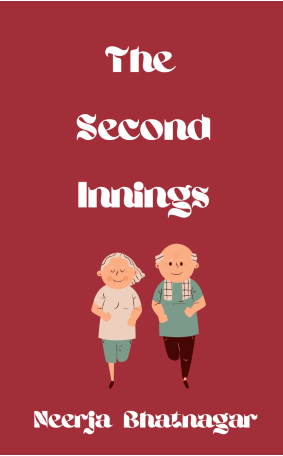Life after retirement
Book
Review
I chose to read this book precisely
because I am one of its target readers, a retired person. Though I crossed the
conventional age for retirement two years ago, I continue to do the same job (teaching)
with renewed enthusiasm and hence don’t feel like a retired person at all. But
I know I will have to face the starkness sooner than later. It won’t be hard
because I love reading, writing and travelling.
Neerja
Bhatnagar’s book is a forbearing companion to all the retired people who may
wish to know certain things like how to make the retired life happier and
healthier. What is more important than being happy and healthy especially in
one’s retired life? This book offers valuable tips and more. It goes beyond and
helps one with certain financial matters too.
Right in the
beginning of the book, just after the introductory chapter titled ‘Retirement –
A Shock?’, the question is put to the reader: How to be happy? (chapter 2). For
a person who is contented and happy (like me 😊)
the tips may not be new. But they are definitely worth a reminder. Especially
when the happiness and contentment are facing a potential threat from the very
fact of retirement. Neerja reminds us of the importance of self-acceptance,
living in the present, not taking life for granted, physical self-care, etc. I
loved certain counsels like: “The need to please everyone is over. Whole life,
people try to please spouses, parents, children, and friends. With age, one
realizes the futility of pleasing everyone. Once you realize this, the stress
of making others happy is gone. Do things which make you happy and chill! It is
time to be a cool grandparent.”
Quite a few
of the ensuing chapters are on health and related issues like food. Neerja
knows what she is talking about and her counsels are worth paying heed to. That
is why I recommend this book to all retired people. They need these counsels.
They may know many of these but it is worth being reminded once more.
‘Ageing
Gracefully’ (chapter 3) is very important. Who wants grumpy old people? Don’t
go around giving unwanted advice to others though you may know better than them
with all the experience you have accrued so far. “Do not preach or teach
anyone,” says Neerja, “even if you are sure that you are correct.” And never,
never be a “complaining monster,” one who is always complaining about “own
health, government, children and even retirement.” “As long as you are alive, be
happy, humble, and enjoy your innings on the blue planet.”
Certain
diseases that the elderly are particularly vulnerable to are discussed in
sufficient detail and effective guidelines are provided. Generation gap too gets
a chapter. I love Neerja’s sane and very pragmatic advice to the elderly to understand
the younger generation and their ways, make necessary compromises, love unconditionally
and trust the young. In the end “agree to disagree” where required.
There are
very practical guidelines on health insurance, money matters and even
cryptocurrency. This last, cryptocurrency, is something that I have never
understood and Neerja doesn’t enlighten me better. But that is not a flaw of
the book. It is my limitation. Except for that one chapter (on cryptocurrency),
the book is very lucid, wise and pragmatic. Hats off to Neerja!
Towards the
end there is a look at some government initiatives for the elderly too. I wasn’t
aware of https://sacred.dosje.gov.in/
until I read this book.
I
wholeheartedly recommend this
free book to all retired people. They stand to gain much by reading this.
 |
| An extract from the chapter on Depression |

Hari OM
ReplyDeleteYes, it can be easy to forget in our age that we still need prompts for better living! YAM xx
Indeed.
DeleteI read this review a day after watching a rather enjoyable film made on the subject of retirement. It's called Sharmaji Namkeen (Hindi). Good health and happiness -- a great duo to aim for and work towards at any age:)
ReplyDeleteI don't watch Hindi movies due to language understanding problems. But I'd watch this one if you order me 😆
DeleteJust trying to be funny. How are you, Arti?
Thank you for such a heart warming review. I am happy to know that you find it useful for people who are retired, retiring.
ReplyDeleteYou've done a great service by publishing this book. Kudos.
DeleteEnjoyed reading this review! The same book can be reviewed by different persons to get other angles and styles of communication is what I have found, having reviewed the book myself.
ReplyDeleteIndeed every reader has his own perspectives and expectations which colour the understanding of a book.
DeleteFrom Day 1 of retirement, I was more active as I escaped the chains of the office desk; in turn, I slept better but also felt less tired during the day. Nonetheless, I was not fit and ended up making this one of my very first priorities signing up for a fitness challenge at the gym, taking exercise classes I had never previously considered, and pushing myself beyond my previous limitations. I got a very good blog for the new retiree. Everyone should follow that blog.
ReplyDelete